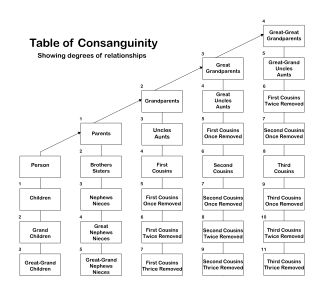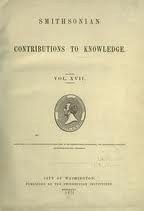The term matrilateral describes kin (relatives) "on the mother's side".
Social anthropologists have underlined that even where a social group demonstrates a strong emphasis on one or other line of inheritance (matrilineal or patrilineal), relatives who fall outside this unilineal grouping will not simply be ignored. So, a strongly patrilineal orientation will be complemented by matrilateral ties with the mother's kin. Likewise within a strongly matrilineal organisation, patrilateral ties will enter the reckoning of relationships as an important balancing factor. This complementarity often has a moral or emotional tone to it: Malinowski's classic studies of the matrilineal Trobriand islanders showed that matrilineal ties were associated with discipline and authority, while patrilateral ties were characterised by nurturance and kindness (at least in principle). Likewise, in Chinua Achebe's novel Things Fall Apart, the hero, Okonkwo is forced into exile from his own ancestral village to the village of his matrilateral kin who should, by rights, treat him with maternal fondness.
Matrilineality is the tracing of kinship through the female line. It may also correlate with a social system in which each person is identified with their matriline – their mother's lineage – and which can involve the inheritance of property and/or titles. A matriline is a line of descent from a female ancestor to a descendant in which the individuals in all intervening generations are mothers – in other words, a "mother line". In a matrilineal descent system, an individual is considered to belong to the same descent group as their mother. This matrilineal descent pattern is in contrast to the more common pattern of patrilineal descent from which a family name is usually derived. The matriline of historical nobility was also called their enatic or uterine ancestry, corresponding to the patrilineal or "agnatic" ancestry.
Patrilineality, also known as the male line, the spear side or agnatic kinship, is a common kinship system in which an individual's family membership derives from and is recorded through his or her father's lineage. It generally involves the inheritance of property, rights, names or titles by persons related through male kin.
Malinowski is a surname of Polish-language origin. It is related to the following surnames:
Matrilateral cross-cousin marriage is typically used by anthropologists to describe a form of marriage in which the sons of one consanguineous group marry the daughters of the consanguineous group from which their mother originates. This may take the form of a preference for this kind of cousin marriage or a prescription that this is what will happen. The logical consequences of cross-cousin marriage (matrilateral or patrilateral) for group formation were first discussed in detail by Reo Fortune [1] and have provoked a great deal of debate amongst social anthropologists including Claude Lévi-Strauss, Edmund Leach and Rodney Needham (alliance theory).

Reo Franklin Fortune was a New Zealand-born social anthropologist. Originally trained as a psychologist, Fortune was a student of the major theorists of British and American social anthropology including Alfred Cort Haddon, Bronislaw Malinowski and Alfred Radcliffe-Brown. He lived an international life, holding various academic and government positions in China, the United States, Canada, Burma, and finally, in the United Kingdom as lecturer in social anthropology at Cambridge University from 1947 to 1971, as a specialist in Melanesian language and culture.

Claude Lévi-Strauss was a French anthropologist and ethnologist whose work was key in the development of the theory of structuralism and structural anthropology. He held the chair of Social Anthropology at the Collège de France between 1959 and 1982 and was elected a member of the Académie française in 1973. He received numerous honors from universities and institutions throughout the world and has been called, alongside James George Frazer and Franz Boas, the "father of modern anthropology".
Sir Edmund Ronald Leach was a British social anthropologist.
An incest taboo is any cultural rule or norm that prohibits sexual relations between closely related persons. All human cultures have norms that exclude certain close relatives from those considered suitable or permissible sexual or marriage partners, making such relationships taboo. However, different norms exist among cultures as to which blood relations are permissible as sexual partners and which are not. Sexual relations between related persons which are subject to the taboo are called incestuous relationships.

In anthropology, kinship is the web of social relationships that form an important part of the lives of all humans in all societies, although its exact meanings even within this discipline are often debated. Anthropologist Robin Fox states that "the study of kinship is the study of what man does with these basic facts of life – mating, gestation, parenthood, socialization, siblingship etc." Human society is unique, he argues, in that we are "working with the same raw material as exists in the animal world, but [we] can conceptualize and categorize it to serve social ends." These social ends include the socialization of children and the formation of basic economic, political and religious groups.

Consanguinity is the property of being from the same kinship as another person. In that aspect, consanguinity is the quality of being descended from the same ancestor as another person.
Iroquois kinship is a kinship system named after the Haudenosaunee people that were previously known as Iroquois and whose kinship system was the first one described to use this particular type of system. Identified by Lewis Henry Morgan in his 1871 work Systems of Consanguinity and Affinity of the Human Family, the Iroquois system is one of the six major kinship systems.
Crow kinship is a kinship system used to define family. Identified by Lewis Henry Morgan in his 1871 work Systems of Consanguinity and Affinity of the Human Family, the Crow system is one of the six major kinship systems.
Omaha kinship is the system of terms and relationships used to define family in Omaha tribal culture. Identified by Lewis Henry Morgan in his 1871 work Systems of Consanguinity and Affinity of the Human Family, the Omaha system is one of the six major kinship systems which he identified internationally.
Fictive kinship is a term used by anthropologists and ethnographers to describe forms of kinship or social ties that are based on neither consanguineal nor affinal ties, in contrast to true kinship ties.
In discussing consanguineal kinship in anthropology, a parallel cousin or ortho-cousin is a cousin from a parent's same-sex sibling, while a cross-cousin is from a parent's opposite-sex sibling. Thus, a parallel cousin is the child of the father's brother or of the mother's sister, while a cross-cousin is the child of the mother's brother or of the father's sister. Where there are unilineal descent groups in a society, one's parallel cousins on one or both sides will belong to one's own descent group, while cross-cousins will not.
Structural anthropology is a school of anthropology based on Claude Lévi-Strauss' idea that immutable deep structures exist in all cultures, and consequently, that all cultural practices have homologous counterparts in other cultures, essentially that all cultures are equitable.
The avunculate, sometimes called avunculism or avuncularism, is any social institution where a special relationship exists between an uncle and his sisters' children. This relationship can be formal or informal, depending on the society. Early anthropological research focused on the association between the avunculate and matrilineal descent, while later research has expanded to consider the avunculate in general society.

Cousin marriage is marriage between cousins. Opinions and practice vary widely across the world. In some cultures and communities, cousin marriage is considered ideal and actively encouraged; in others, it is subject to social stigma. In some countries, this practice is common; in others it is uncommon but still legal. In others, it is seen as incestuous and is legally prohibited: it is banned in China and Taiwan, North Korea, South Korea, the Philippines and 24 of the 50 United States. Supporters of cousin marriage where it is banned may view the prohibition as discrimination, while opponents may appeal to moral or other arguments. Worldwide, more than 10% of marriages are between first or second cousins.
The alliance theory, also known as the general theory of exchanges, is a structuralist method of studying kinship relations. It finds its origins in Claude Lévi-Strauss's Elementary Structures of Kinship (1949) and is in opposition to the functionalist theory of Radcliffe-Brown. Alliance theory has oriented most anthropological French works until the 1980s; its influences were felt in various fields, including psychoanalysis, philosophy and political philosophy.
Kinship terminology is the system used in languages to refer to the persons to whom an individual is related through kinship. Different societies classify kinship relations differently and therefore use different systems of kinship terminology; for example, some languages distinguish between consanguine and affinal uncles, whereas others have only one word to refer to both a father and his brothers. Kinship terminologies include the terms of address used in different languages or communities for different relatives and the terms of reference used to identify the relationship of these relatives to ego or to each other.

Woman's Evolution: From Matriarchal Clan to Patriarchal Family is a 1975 book by the American revolutionary socialist Evelyn Reed. The book gives a Marxist view on the history of women and is considered to be a pioneer work of Marxist feminism. It has been translated into many languages.
Cousin marriage is allowed and often encouraged throughout the Middle East. Anthropologists have debated the significance of the practice; some view it as the defining feature of the Middle Eastern kinship system while others note that overall rates of cousin marriage have varied sharply between different Middle Eastern communities. There is very little numerical evidence of rates of cousin marriage in the past.
Aboriginal Australian kinship are the systems of law governing social interaction, particularly marriage, in traditional Australian Aboriginal cultures. It is an integral part of the culture of every Aboriginal group across Australia.

In anthropology, a house society is a society where kinship and political relations are organized around membership in corporately-organized dwellings rather than around descent groups or lineages, as in the "House of Windsor". The concept was originally proposed by Claude Lévi-Strauss who called them "sociétés à maison". The concept has been applied to understand the organization of societies from Mesoamerica and the Moluccas to North Africa and medieval Europe.

Systems of Consanguinity and Affinity of the Human Family is an 1871 book written by Lewis Henry Morgan and published by the Smithsonian Institution. It is considered foundational for the discipline of anthropology and particularly for the study of human kinship. It was the culmination of decades of research into the variety of kinship terminologies in the world conducted partly through fieldwork and partly through a global survey of kinship terminologies in the languages and cultures of the world.
Bangladesh did not exist as a distinct geographic and ethnic unity until independence. The region had been a part of Bangla, Bengali: বাংলা/বঙ্গ, whose history dates back to four millennia, and during the British period it formed the Bengal province, the eastern part of the British Indian Empire, which was dominated by the British rulers and Hindu professional, commercial, and landed elites. After the establishment of Pakistan in 1947, present-day Bangladesh came under the hegemony of the non-Bengali Muslim elites of the West Wing of Pakistan. The establishment of Bangladesh, therefore, implied the formation of both a new nation and a new social order.






